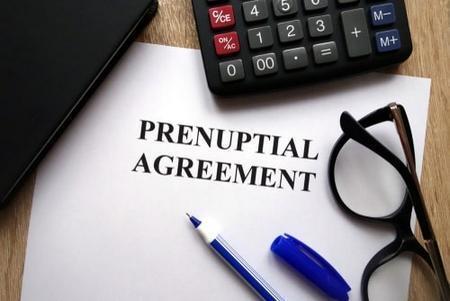Can a Prenuptial Agreement Be Invalidated Because of Unfairness?
 For many married couples, a prenuptial agreement can provide a sense of security, ensuring that they will be able to avoid uncertainty and minimize conflict in the case of a divorce. By using a prenup to make decisions about issues such as property division and spousal maintenance ahead of time, spouses can protect their financial interests and make sure they will each be able to move forward successfully following the end of their relationship. However, there are some cases where a prenuptial agreement may be challenged by one party. While these challenges may be based on a variety of factors, one common reason a spouse may believe that a prenup should not be enforced is that it is unfair. By understanding when this type of challenge may be made, spouses can determine the best ways to approach these situations.
For many married couples, a prenuptial agreement can provide a sense of security, ensuring that they will be able to avoid uncertainty and minimize conflict in the case of a divorce. By using a prenup to make decisions about issues such as property division and spousal maintenance ahead of time, spouses can protect their financial interests and make sure they will each be able to move forward successfully following the end of their relationship. However, there are some cases where a prenuptial agreement may be challenged by one party. While these challenges may be based on a variety of factors, one common reason a spouse may believe that a prenup should not be enforced is that it is unfair. By understanding when this type of challenge may be made, spouses can determine the best ways to approach these situations.
Unconscionability of Prenuptial Agreements
A prenuptial agreement may favor either party in certain ways, such as by granting one spouse a majority of the couple’s marital assets. Unfairness on its own is usually not a sufficient reason to challenge an agreement. A prenup will generally be enforceable unless it is "unconscionable," or grossly unfair to one party. For example, if an agreement states that one spouse will maintain ownership of 95 percent of the assets the couple owns, it may be considered unconscionable because it would create a situation where the other spouse would most likely struggle to support themselves.
To successfully challenge a prenuptial agreement based on unconscionability, a person will also need to show that they did not have adequate knowledge of the other spouse’s financial resources before signing the agreement. Most of the time, when creating a prenup, a couple will provide each other with a full disclosure of their finances, including all sources of income, information about the assets they own, and any other issues that affect their financial resources. The parties may also waive their right to receive this type of disclosure. In general, a spouse cannot challenge a prenup based on unconscionability if they received a fair and reasonable disclosure from the other spouse or waived their right to a disclosure in writing. However, a prenup may be challenged if some of a spouse’s assets were not fully disclosed or if the other spouse did not have adequate knowledge of their partner’s income and assets.
In some cases, terms of a prenup that affect one party’s right to receive spousal support may be challenged. If an agreement would modify or eliminate the maintenance that one party would be entitled to receive, and this would cause that party to experience undue hardship, the spouse may ask that spousal support be awarded even if the prenup stated otherwise. In these cases, the circumstances that would cause undue hardship must not have been reasonably foreseeable at the time that the agreement was originally signed.
Contact Our St. Charles Prenuptial Agreement Lawyers
At Goostree Law Group, we can help you understand how a prenup will affect your divorce. If you believe that your agreement is unfair, we will work with you to determine whether it can be challenged, and we will fight to protect your rights and interests as you proceed with the divorce process. For experienced and dedicated legal help with these issues, contact our Kane County prenup attorneys at 630-584-4800 and arrange a free consultation today.
Sources:
https://www.ilga.gov/legislation/ilcs/ilcs3.asp?ActID=2087&ChapterID=59
https://www.forbes.com/sites/jefflanders/2013/04/02/five-reasons-your-prenup-might-be-invalid/?sh=c9807c119a50











